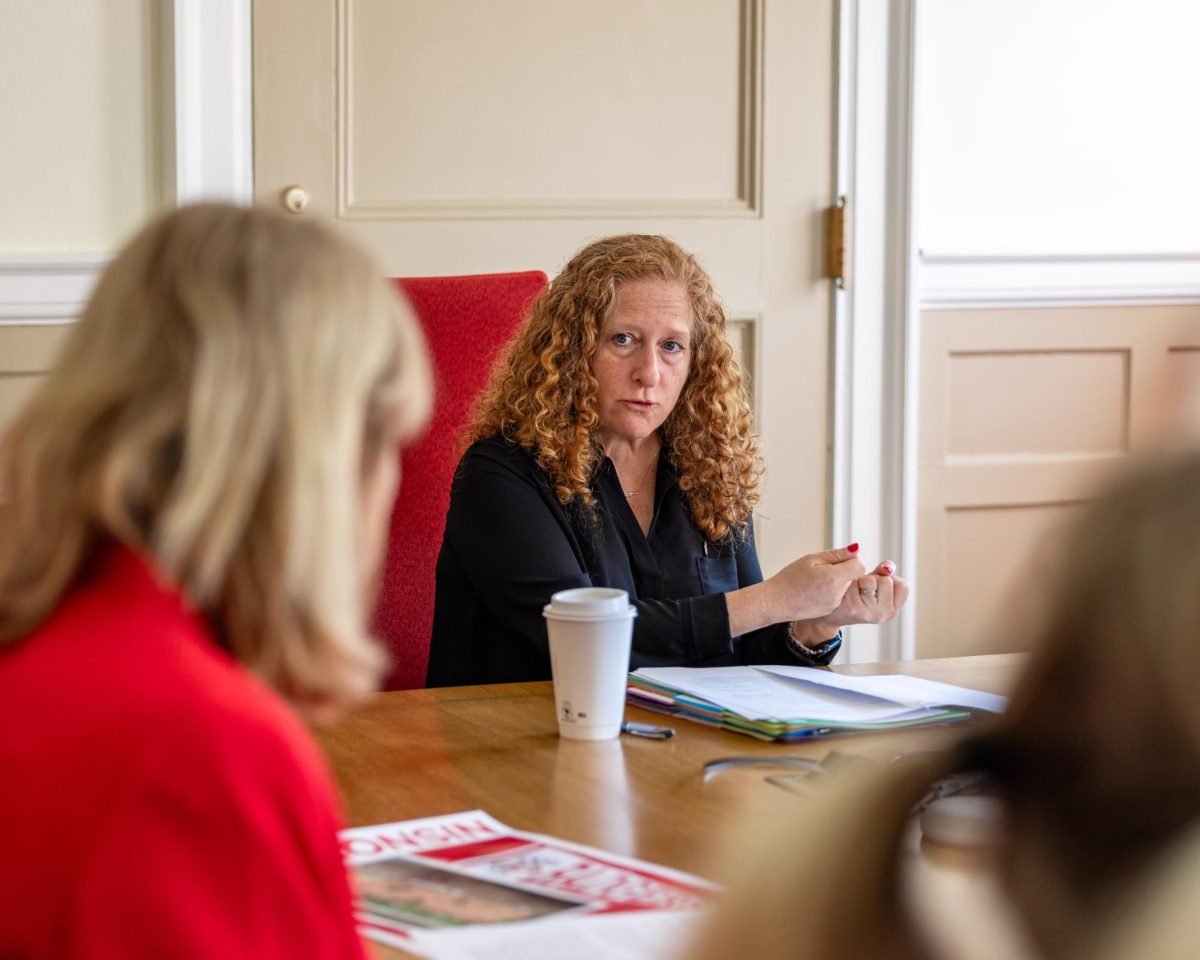The future of the University of Wisconsin-Madison is a subject of debate within the 2024 Legislative Council Study Committee on the future of the Universities of Wisconsin System.
The topic was brought up in the council’s meeting on Aug. 29 by Vice President for Administration at University of Wisconsin System James Langdon. Langdon distributed a written proposal to the other committee members, according to the meeting minutes.
Part of Langdon’s proposal focused on establishing UW-Madison as a separate state agency named the “University of Wisconsin” and providing UW with limited bonding authority, according to the meeting minutes.
In last month’s meeting Wisconsin Policy Forum President Jason Stein gave a presentation regarding higher education governance. UW-Madison, out of its peer universities, is the only one that both reports to a larger governing board with statutory authority and is part of a comprehensive statewide system, according to the 62-page document.
Other committee members argued that the separation would make the flagship more competitive nationally, according to a report from the Milwaukee Journal Sentinel.
Another argument made for UW-Madison’s spin-off is that it would allow the council to focus on solving problems at the other 12 universities. In the 2024 Universities of Wisconsin Facts and Trends documents, there are several statistics regarding declining enrollment and lack of funding that write “excluding UW-Madison” in parentheses. Many of the issues that the other universities are facing, the university doesn’t have, according to an email statement from committee member Peter Kies.
“UW-Madison is a premier academic institution that provides nearly $30 billion in economic impact to our state each year,” Kies said. “As a member of the committee examining the future of higher education in Wisconsin, I feel it’s important that we fully explore how we best position UW-Madison and the Universities of Wisconsin for long-term success with an understanding that may require changes to how our state’s flagship campus is governed.”
Among those opposed to the UW spin-off are Chancellor Jennifer Mnookin and State Senator Chris Larson (D-Milwaukee). Both have raised concerns about how the spin-off might alter the system’s mission.
Larson expressed skepticism about the merits of this proposal, warning that it could exacerbate what he sees as a trend of dwindling state support for higher education.
“I see no evidence, if you cleave off one campus from the others, that the exact same thing wouldn’t just happen, only now you’re you have it divided or you have UW cleaved off, and then you have the rest of them also trying to fend for themselves,” Larson said.
The conversation around whether or not UW-Madison should separate from the 53-year-old system is not new. It’s been brought up several times in the past, but has been met with opposition.
Former Governor Scott Walker’s 2011-2013 biennial budget originally had a proposal to remove UW-Madison from the UW System. The drafted proposal was met with pushback from the system.
“If changes are proposed that establish UW-Madison as a separate, self-contained institution with its own governance board separate from the Board of Regents, we would return to a two-tiered system the state abandoned 40 years ago for good reasons,” the UW System said in an open letter to Governor Walker. “Those competing systems gave rise to wasteful duplication, unnecessary competition and conflict.”
Despite the UW System’s disapproval, former UW-Madison Chancellor, Carolyn “Biddy” Martin, supported the schism, according to the Cap Times. This put the former chancellor in the middle of a lot of controversy. The proposal for the separation was deleted from the final budget, and 10 days later, on June 14, Martin announced that she’d be leaving the university.
Larson attributes the renewed interest in this idea to a “scarcity mentality” and the influence of conservative economic philosophies, such as those taught by Milton Friedman, which advocate for the shrinking of government.
“This is the biggest line item for the state of Wisconsin, higher education, and so there is always a temptation to slash and burn it as a way to lower taxes for rich folks,” Larson said.
Larson also highlighted the historical significance of the UW system, noting its role in the development of landmark social programs like Social Security and Medicare. He argued that the conversation should focus on Wisconsin’s achievements in higher education and making strides to achieve more.
The senator’s concerns echo the sentiments of UW System President Jay Rothman and UW Chancellor Mnookin, both of whom have publicly stated their belief that the system is better off remaining united.
At a student media roundtable in September, Mnookin expressed her opinion on the topics. The chancellor acknowledged the ways that UW is different from Wisconsin’s other universities, and that this dialogue is legitimate. But, she stands behind the Universities of Wisconsin’s current structure.
“It is both possible and preferable to manage those differences as one organization for higher education in the state of Wisconsin,” Mnookin said.




